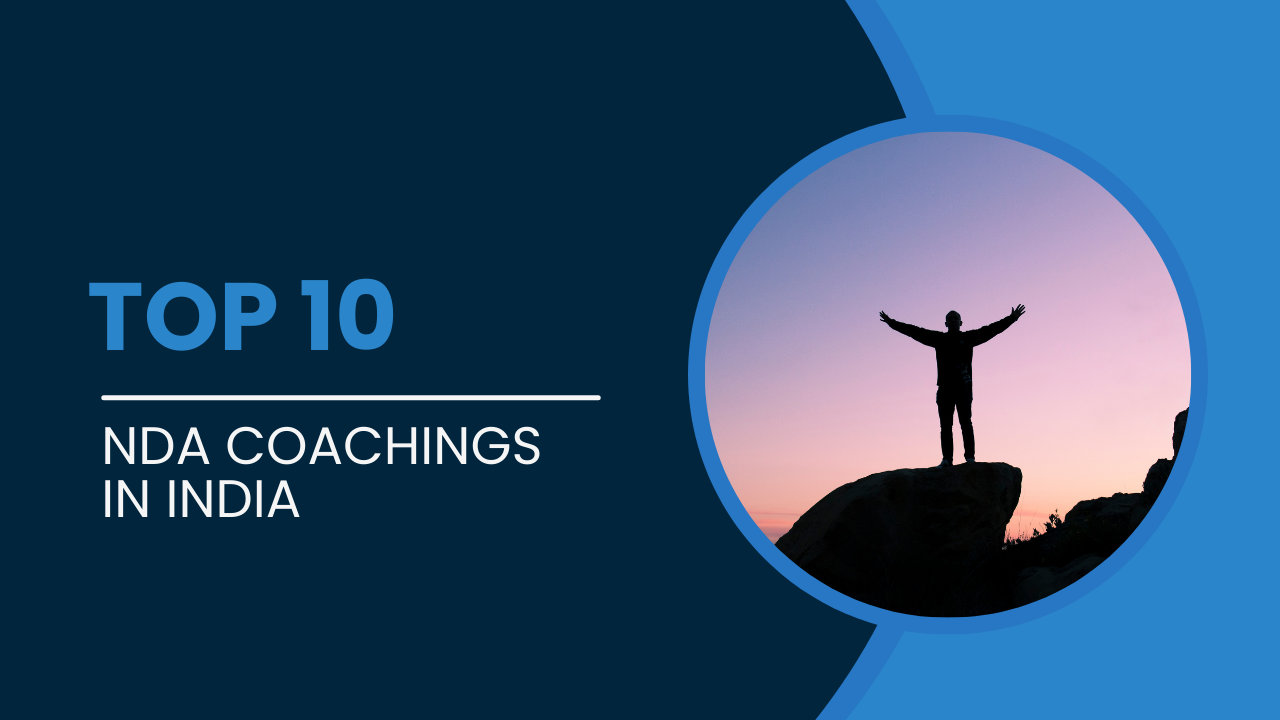The Combined Defence Services (CDS) examination, conducted by the Union Public Service Commission (UPSC), is a gateway to prestigious officer roles in the Indian Army, Navy, and Air Force. This challenging exam requires a strong foundation in various subjects, including English, General Knowledge, and Elementary Mathematics. To enhance your chances of success, enrolling in the right coaching courses can provide invaluable guidance and support. This article explores the top 10 courses that can significantly boost your CDS exam preparation.
10. Personality Development and Current Affairs:
- Importance: These aspects are crucial for both the written exam and the SSB interview. Personality development focuses on building confidence, communication skills, and leadership qualities.
- Key Areas:
- Personality Development: Communication skills, teamwork, leadership qualities, problem-solving, and decision-making.
- Current Affairs: Stay updated with national and international current affairs through newspapers, magazines, and online resources.
- Recommended Resources:
- Newspapers and magazines: The Hindu, The Indian Express, Frontline, and Yojana.
- Online resources: Insights on India, Mrunal, and Unacademy.
- Mock interviews: Practice mock interviews to improve communication skills and build confidence.
Personality Development and Current Affairs: Cornerstones of CDS Success
Personality Development:
The SSB interview heavily emphasizes personality traits like leadership, teamwork, integrity, and social adaptability. A well-rounded personality is crucial for success. Here’s how to cultivate these qualities:
- Self-Reflection:
- Introspection: Engage in regular self-reflection to understand your strengths, weaknesses, values, and aspirations.
- Identify areas for improvement: Pinpoint areas where you can enhance your communication, interpersonal skills, and overall personality.
- Communication Skills:
- Active Listening: Practice active listening by paying close attention to others, asking clarifying questions, and demonstrating empathy.
- Clear and Concise Communication: Develop the ability to express your thoughts and ideas clearly and concisely, both verbally and in writing.
- Public Speaking: Practice public speaking to improve your confidence and presentation skills. Join a debate club or Toastmasters International to gain valuable experience.
- Teamwork and Leadership:
- Participate in group activities: Engage in team sports, group projects, or volunteer work to enhance your teamwork and leadership skills.
- Take initiative: Seek opportunities to lead and guide others, demonstrating your initiative and problem-solving abilities.
- Physical Fitness:
- Maintain physical fitness: A healthy lifestyle contributes to mental and physical well-being, boosting confidence and energy levels.
- Engage in physical activities: Participate in sports, exercise regularly, and maintain a balanced diet.
Current Affairs:
Staying updated with current affairs is crucial for both the written exam and the SSB interview. It demonstrates awareness, intellectual curiosity, and an understanding of the world around you.
- Key Areas:
- National: Political developments, government policies, social issues, economic trends, and defense-related news.
- International: Global politics, international relations, major world events, and global economic trends.
- Defense: Military developments, defense technologies, and global security issues.
- Effective Strategies:
- Daily Reading: Make it a habit to read newspapers like The Hindu, The Indian Express, and The Times of India daily.
- Online Resources: Utilize online platforms like Insights on India, Mrunal, and Unacademy for comprehensive coverage of current affairs.
- Note-Making: Maintain a regular note-making habit to summarize and retain important information.
- Mock Tests: Practice mock tests that include current affairs-based questions to assess your knowledge and identify areas for improvement.
- Discussions: Engage in discussions with friends, peers, and mentors to gain different perspectives on current events.
Integrating Personality Development and Current Affairs:
- Relate Current Affairs to Personality: Analyze current events through the lens of leadership, teamwork, and ethical considerations. How can you apply your leadership qualities to address current challenges?
- Express Opinions: Formulate your own informed opinions on current events and be prepared to articulate them clearly and confidently.
- Connect with Global Issues: Demonstrate an understanding of global issues and their impact on India and the world.
Conclusion:
Personality development and a strong grasp of current affairs are crucial for success in the CDS exam and the SSB interview. By focusing on these areas, you can significantly enhance your chances of selection and embark on a rewarding career in the Indian Armed Forces.
Disclaimer: This information is for general knowledge and informational purposes only. The success of SSB preparation depends on various factors, including individual effort, dedication, and inherent qualities.

9. Defense Studies:
- Importance: Knowledge of the Indian Armed Forces, military history, and defense technologies is essential for the CDS exam and the SSB interview.
- Key Areas:
- Indian Armed Forces: Organization, structure, and functions of the Indian Army, Navy, and Air Force.
- Military History: Major wars and battles fought by India.
- Defense Technologies: Modern weapons systems, military technology, and advancements in defense research.
- Recommended Resources:
- Books on Indian Military History: Explore books on Indian military history and the history of the Indian Armed Forces.
- Defense Journals: Read defense journals and magazines to stay updated on current defense affairs.
- Online Resources: Utilize online resources and websites dedicated to defense studies.
Defense Studies for CDS: A Deeper Dive
Defense Studies is a crucial component of CDS exam preparation, encompassing a wide range of topics related to the Indian Armed Forces, military history, and contemporary defense issues. A strong understanding of this domain is essential not only for the written exam but also for the SSB interview, where your knowledge and awareness will be assessed.
Key Areas of Focus:
- Indian Armed Forces:
- Organization and Structure: Acquire a comprehensive understanding of the organizational structure, hierarchy, and functions of the Indian Army, Navy, and Air Force.
- Army: Corps, regiments, ranks, and operational commands.
- Navy: Branches, ships, submarines, and aviation.
- Air Force: Branches, aircraft, and roles.
- History of the Indian Armed Forces: Study the evolution of the Indian Armed Forces, major wars and battles fought by India, and significant military operations.
- Recent Developments: Stay updated on recent developments in the Indian Armed Forces, including new acquisitions, operational deployments, and technological advancements.
- Organization and Structure: Acquire a comprehensive understanding of the organizational structure, hierarchy, and functions of the Indian Army, Navy, and Air Force.
- Military History:
- World Wars: Study the major world wars, their impact on global geopolitics, and key military strategies and technologies.
- Key Battles and Campaigns: Explore significant battles and campaigns throughout history, analyzing military tactics, leadership, and technological advancements.
- Military Leaders: Learn about prominent military leaders and their contributions to military history.
- Defense Technologies:
- Modern Warfare: Understand the evolving nature of modern warfare, including asymmetric warfare, cyber warfare, and information warfare.
- Weapons Systems: Familiarize yourself with various weapons systems, including tanks, aircraft, missiles, and naval vessels.
- Defense Research and Development: Learn about advancements in defense technology, including indigenous defense production and research initiatives.
- Geopolitics and National Security:
- Geopolitical Issues: Analyze key geopolitical issues impacting India’s national security, such as regional conflicts, terrorism, and nuclear proliferation.
- Internal Security Challenges: Understand internal security challenges facing India, including insurgency, extremism, and border security.
- National Security Strategy: Familiarize yourself with India’s national security strategy and its implications for defense preparedness.
- Current Affairs:
- Defense News: Stay updated on the latest developments in the defense sector through news channels, newspapers, and online resources.
- International Security Issues: Follow global security developments, including regional conflicts, international relations, and arms control treaties.
Recommended Resources:
- Books on Indian Military History: Explore books on the history of the Indian Armed Forces, such as “India’s Wars” by K.K. Nayar and “The Story of the Indian Army” by Brigadier S.L. Rawat.
- Defense Journals: Read defense journals like “IDSA Journal,” “Strategic Analysis,” and “Defence & Security Alert” to stay updated on current defense issues.
- Newspapers and Magazines: Regularly read newspapers like “The Hindu,” “The Indian Express,” and magazines like “Frontline” for defense-related news and analysis.
- Online Resources: Utilize online resources like the Ministry of Defence website, the Indian Army website, and defense-related news portals for the latest updates.
- Documentary Films: Watch documentaries on military history, battles, and contemporary defense issues to gain a deeper understanding of the subject.
By diligently studying these topics and staying updated with current developments, you can significantly enhance your knowledge of Defense Studies and increase your chances of success in the CDS examination.
Disclaimer: This information is for educational purposes only and does not constitute professional advice.
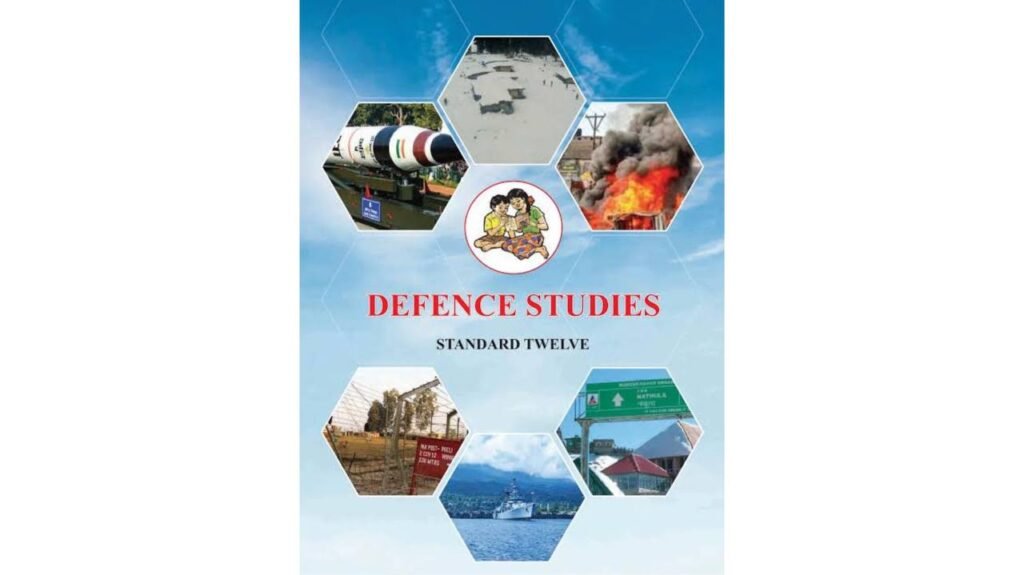
8. Economics:
- Importance: Basic economic concepts are tested in the General Knowledge section of the CDS exam.
- Key Areas:
- Microeconomics: Demand, supply, market equilibrium, consumer behavior.
- Macroeconomics: National income, GDP, inflation, unemployment, and economic growth.
- Indian Economy: Economic reforms, challenges, and growth prospects.
- Recommended Resources:
- NCERT textbooks: Provides a good foundation for basic economic concepts.
- Sanjeev Verma’s Indian Economy: A popular book for Indian economy.
- Economic Survey of India: Provides insights into the current state of the Indian economy.
Economics for CDS Exam: A Deeper Dive
Economics plays a crucial role in the CDS exam, particularly within the General Knowledge section. While a comprehensive understanding of economic principles is not the primary focus, a foundational knowledge of key concepts is essential.
Key Areas of Focus:
- Microeconomics:
- Demand and Supply: Understanding the fundamental forces that drive market prices, including factors influencing demand and supply curves, market equilibrium, and price elasticity.
- Consumer Behavior: Analyzing consumer preferences, utility maximization, and consumer surplus.
- Producer Behavior: Understanding production costs, revenue, and profit maximization.
- Market Structures: Examining different market structures, such as perfect competition, monopoly, oligopoly, and monopolistic competition.
-
- Consumer and Producer Surplus: Understanding the concepts of consumer surplus and producer surplus and their implications for market efficiency.
- Macroeconomics:
- National Income Accounting: Understanding key macroeconomic indicators like GDP (Gross Domestic Product), GNP (Gross National Product), and national income.
- Inflation and Deflation: Understanding the causes and consequences of inflation and deflation, and the role of central banks in controlling inflation.
- Unemployment: Different types of unemployment (frictional, structural, cyclical), and government policies to address unemployment.
- Money and Banking: Understanding the role of money in the economy, the functions of central banks, and the banking system.
- Economic Growth and Development: Understanding the factors that drive economic growth and development, and the challenges faced by developing economies.
- Indian Economy:
- Economic Reforms: Understanding the key economic reforms undertaken in India since independence, including liberalization, privatization, and globalization.
- Challenges Facing the Indian Economy: Analyzing the major challenges facing the Indian economy, such as poverty, inequality, and environmental degradation.
- Government Policies: Understanding key government policies related to economic growth and development, such as industrial policies, agricultural policies, and social sector policies.
Recommended Approach:
- NCERT Textbooks: Start with the NCERT textbooks for economics (class 11 and 12) to build a strong foundation in basic economic concepts.
- Focus on Key Concepts: Pay close attention to the key concepts and their applications in the Indian context.
- Stay Updated with Current Economic Issues: Regularly read newspapers, magazines, and online resources to stay updated with current economic issues and government policies.
- Practice with Previous Year Question Papers: Analyze previous year question papers to understand the exam pattern and identify areas of weakness.
- Solve Practice Questions: Practice solving a variety of multiple-choice questions to improve your speed and accuracy.
Key Resources:
- NCERT Textbooks: Class 11 and 12 economics textbooks are highly recommended for building a strong foundation.
- Sanjeev Verma’s Indian Economy: A comprehensive and popular book for Indian economy.
- Economic Survey of India: Provides insights into the current state of the Indian economy.
- Newspapers and Magazines: The Hindu, The Indian Express, and Business Standard provide valuable insights into current economic issues.
- Online Resources: Websites like Mrunal, Insights on India, and Unacademy offer valuable resources and study materials for the CDS exam.
Conclusion:
While a deep dive into advanced economic theory is not required for the CDS exam, a solid understanding of basic economic concepts, current economic issues, and the Indian economy is crucial. By focusing on the key areas mentioned above and utilizing the recommended resources, you can effectively prepare for the economics portion of the CDS exam and increase your chances of success.
Disclaimer: This information is for educational purposes only and does not constitute financial or investment advice.
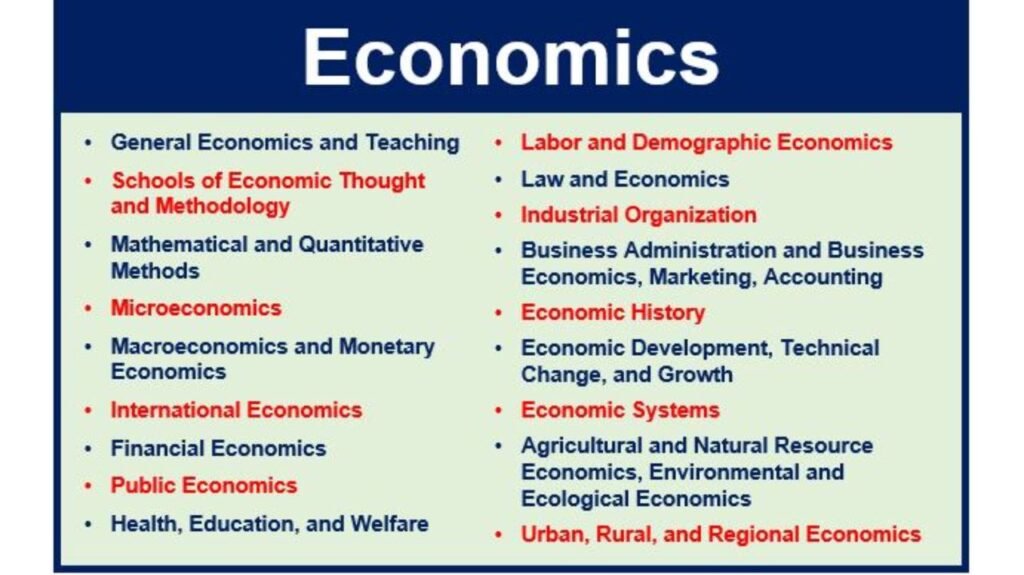
7. Polity:
- Importance: A thorough understanding of the Indian Constitution and political system is crucial for the CDS exam.
- Key Areas:
- Indian Constitution: Fundamental Rights, Fundamental Duties, Directive Principles of State Policy.
- Political System: Parliament, judiciary, executive, and state governments.
- Government Policies: Current government policies and schemes.
- Recommended Resources:
- Laxmikant’s Indian Polity: A comprehensive and popular book for Indian polity.
- NCERT textbooks: Provides a good foundation for Indian Constitution and political system.
- The Hindu: Stay updated with current political developments through newspapers.
Polity for CDS: A Deep Dive into the Indian Constitution and Governance
Polity is a crucial component of the Combined Defence Services (CDS) exam, testing your understanding of the Indian Constitution, its provisions, and the functioning of the Indian government. A strong grasp of these concepts is essential for both the written exam and the SSB interview.
Top 10 Best Campus For SSB (Service Selection Board)….click here
Key Areas of Focus:
- The Indian Constitution:
- Preamble: Understand the core values and principles enshrined in the Preamble.
- Fundamental Rights: Learn about the six fundamental rights guaranteed to all citizens of India, their significance, and limitations.
- Fundamental Duties: Understand the fundamental duties of Indian citizens as outlined in the Constitution.
- Directive Principles of State Policy: Familiarize yourself with the guiding principles for the government to strive towards, though not enforceable by courts.
- Union and State Governments: Understand the structure, powers, and functions of the Union and State governments, including the legislature, executive, and judiciary.
- Centre-State Relations: Understand the distribution of powers between the Centre and the States, including concurrent list, residual list, and inter-state relations.
- Constitutional Amendments: Be aware of significant constitutional amendments and their impact on the Indian polity.
- Parliament:
- Composition and Functions: Understand the composition and functions of the Parliament (Lok Sabha and Rajya Sabha).
- Legislative Process: Familiarize yourself with the law-making process in Parliament, including the introduction, discussion, and passage of bills.
- Powers of Parliament: Understand the legislative, financial, and executive powers of Parliament.
- Judiciary:
- Structure: Understand the structure of the Indian judiciary, including the Supreme Court, High Courts, and subordinate courts.
- Judicial Review: Understand the concept of judicial review and its significance in the Indian context.
- Important Judgements: Familiarize yourself with landmark judgments of the Supreme Court.
- Executive:
- President: Understand the powers, functions, and role of the President of India.
- Vice President: Understand the powers, functions, and role of the Vice President of India.
- Prime Minister and Council of Ministers: Understand the role and functions of the Prime Minister and the Council of Ministers.
- State Legislature:
- Composition and Functions: Understand the composition and functions of State Legislatures (Legislative Assemblies and Legislative Councils).
- Governor: Understand the powers and functions of the Governor of a State.
- Constitutional Bodies:
- Election Commission: Understand the role and functions of the Election Commission of India.
- Finance Commission: Understand the role and functions of the Finance Commission in India.
- Other Constitutional Bodies: Familiarize yourself with the roles and functions of other important constitutional bodies like the Comptroller and Auditor-General of India (CAG), the Attorney General of India, and the Union Public Service Commission (UPSC).
- Current Affairs:
- Stay updated with current political developments, government policies, and significant constitutional issues.
- Follow news reports and analyses related to political events and debates.
Recommended Approach:
- Read and Understand the Constitution: Start by reading the Preamble and key articles of the Indian Constitution.
- Focus on Key Concepts: Understand the core concepts of Indian polity, including democracy, federalism, and separation of powers.
- Practice with Previous Year Papers: Analyze previous years’ CDS exam papers to understand the pattern and types of questions asked.
- Stay Updated: Regularly follow news and current affairs to stay informed about the latest political developments.
- Revise Regularly: Consistent revision is crucial for retaining information and strengthening your understanding.
Remember:
- Polity is a dynamic subject, and the Indian Constitution is subject to amendments. Stay updated with the latest changes and developments.
- Focus on understanding the concepts rather than simply memorizing facts.
- Practice regularly with mock tests and previous years’ question papers to assess your understanding and identify areas for improvement.
By following these guidelines and dedicating consistent effort, you can develop a strong foundation in polity and increase your chances of success in the CDS exam.
Disclaimer: This information is for educational purposes only and should not be considered legal or professional advice.
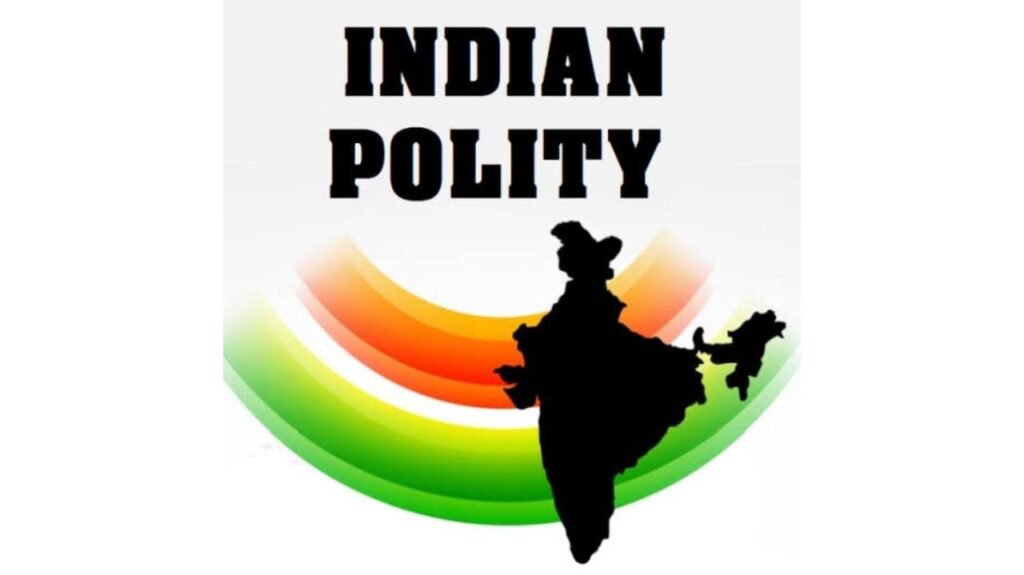
6. Geography:
- Importance: Geographical knowledge is crucial for both the written exam and the SSB interview.
- Key Areas:
- Physical Geography: Continents, oceans, mountains, rivers, and climate.
- Indian Geography: Indian geography, physical features, climate, and natural resources.
- Human Geography: Population, urbanization, and economic geography.
- Recommended Resources:
- NCERT textbooks: A valuable resource for Indian and world geography.
- G.C. Leong’s Geography of India: A comprehensive guide to Indian geography.
- Atlas: A good atlas is essential for visualizing geographical concepts.
Geography for CDS Exam Preparation: A Deeper Dive
Geography is a crucial component of the CDS exam, encompassing a wide range of topics from physical and human geography to Indian and world geography. A strong understanding of geographical concepts is essential for both the written exam and the SSB interview.
Key Areas of Focus:
- Physical Geography:
- Landforms:
- Mountains: Types of mountains (fold, block, volcanic), major mountain ranges of the world (Himalayas, Alps, Andes, Rockies), and their characteristics.
- Plateaus: Formation of plateaus, major plateaus of the world (Deccan Plateau, Tibetan Plateau), and their significance.
- Plains: Formation of plains, major plains of the world (Indo-Gangetic Plain, Amazon Basin), and their characteristics.
- Deserts: Formation of deserts, major deserts of the world (Sahara, Gobi, Thar), and their characteristics.
- Volcanoes and Earthquakes: Causes, effects, and distribution of volcanoes and earthquakes.
- Hydrosphere:
- Oceans and Seas: Major oceans and seas, ocean currents, tides, and their impact on climate.
- Rivers: Major rivers of the world, their courses, and significance.
- Lakes: Major lakes of the world, their formation, and significance.
- Atmosphere:
- Composition of the atmosphere: Layers of the atmosphere, atmospheric pressure, and winds.
- Climate: Factors affecting climate (temperature, precipitation, wind), climate zones, and climatic changes.
- Weather: Weather systems, cyclones, and other weather phenomena.
- Human Geography:
- Population: Population distribution, density, growth, and migration.
- Settlement: Types of settlements (rural, urban), urbanization, and factors influencing settlement patterns.
- Economic Geography: Agriculture, industries, transportation, and trade.
- Social Geography: Social and cultural aspects of different regions.
- Environmental Geography: Environmental issues, pollution, and conservation.
- Indian Geography:
- Physical Features:
- Himalayas: Ranges, peaks, and passes.
- Northern Plains: Formation, rivers, and major cities.
- Peninsular Plateau: Deccan Plateau, Eastern and Western Ghats, and major rivers.
- Islands: Andaman and Nicobar Islands, Lakshadweep Islands.
- Climate:
- Monsoon system: Mechanism of the Indian monsoon, rainfall distribution, and its impact.
- Climate regions of India: Tropical, subtropical, and temperate regions.
- Natural Resources:
- Minerals: Distribution of major minerals in India (coal, iron ore, bauxite, etc.).
- Forests: Types of forests, distribution, and conservation.
- Water Resources: Rivers, lakes, and groundwater resources.
- Agriculture:
- Cropping patterns: Major crops, agricultural regions, and irrigation systems.
- Green Revolution: Impact of the Green Revolution on Indian agriculture.
- World Geography:
- Continents and Oceans: Major continents and oceans, their physical features, and climatic conditions.
- Countries and Capitals: Major countries and their capitals.
- International Boundaries: Important international boundaries and geopolitical issues.
- Regional Geography: Major regions of the world and their characteristics.
Study Tips:
- NCERT Textbooks: Start with NCERT textbooks for a strong foundation in Indian and world geography.
- Atlas: Use an atlas regularly to visualize geographical concepts and locations.
- Current Affairs: Stay updated with current geographical events, such as natural disasters, climate change, and environmental issues.
- Practice Maps: Practice locating places, countries, and geographical features on maps.
- Mock Tests: Take mock tests to assess your understanding and identify areas for improvement.
By focusing on these key areas and employing effective study strategies, you can significantly enhance your geography preparation for the CDS exam.
Disclaimer: This information is for educational purposes only and does not constitute professional guidance.
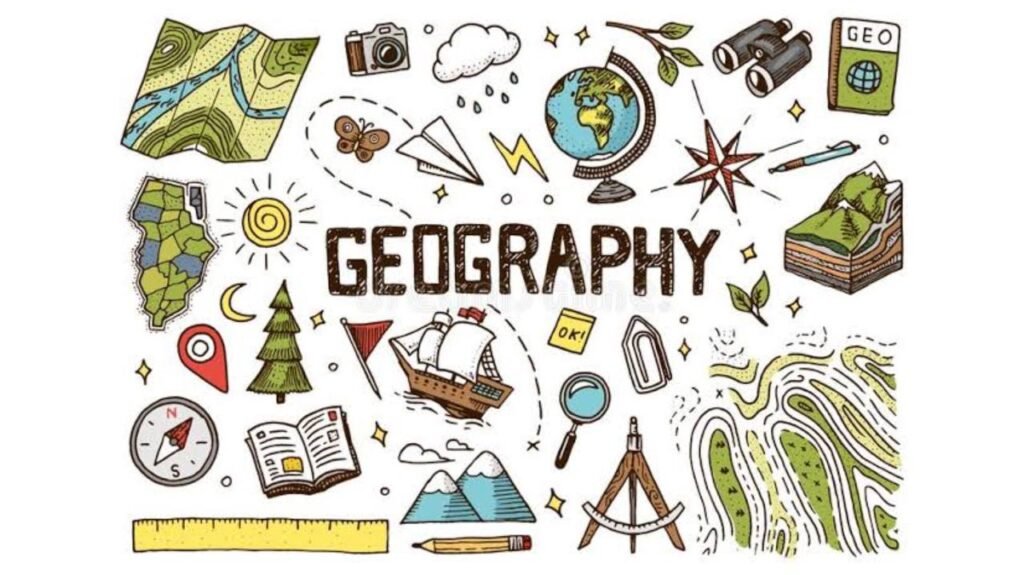
5. History:
- Importance: A strong understanding of Indian and world history is essential for the General Knowledge section of the CDS exam.
- Key Areas:
- Ancient India: Indus Valley Civilization, Vedic Age, Mauryan Empire, Gupta Empire.
- Medieval India: Delhi Sultanate, Mughal Empire, Vijayanagara Empire.
- Modern India: Indian National Movement, freedom struggle, and post-independence India.
- World History: Major civilizations, world wars, and significant historical events.
- Recommended Resources:
- NCERT textbooks: A comprehensive and reliable source for Indian history.
- Spectrum’s Modern Indian History: A popular book for Indian history.
- Norman Lowe’s The Great Powers: A good resource for world history.
History for CDS Exam: A Deep Dive
History plays a crucial role in the Combined Defence Services (CDS) examination, encompassing both Indian and World History. This section delves deeper into the key areas, recommended resources, and effective study strategies for this crucial subject.
Key Areas of Focus:
- Ancient India:
- Indus Valley Civilization: Key features, urban planning, social structure, and decline.
- Vedic Period: Aryan civilization, social and religious beliefs, Vedic literature.
- Rise of Kingdoms: Magadhan Empire, Mauryan Empire under Chandragupta Maurya and Ashoka, their administrative and cultural achievements.
- Gupta Empire: Golden Age of India, advancements in art, literature, and science.
- South Indian Kingdoms: Cholas, Cheras, Pandyas, their contributions to art, architecture, and literature.
- Medieval India:
- Delhi Sultanate: Establishment of Muslim rule in India, key dynasties (Delhi, Khilji, Tughlaq, Sayyid, Lodi), social and cultural impact.
- Mughal Empire: Rise and decline of the Mughal Empire, significant rulers (Babur, Akbar, Jahangir, Shah Jahan, Aurangzeb), their policies and contributions.
- Regional Kingdoms: Vijayanagara Empire, Bahamani Kingdom, and their significance.
- Bhakti and Sufi Movements: Social and religious reform movements in India.
- Modern India:
- Rise of European Powers: Arrival of Europeans in India, establishment of trading posts, and the struggle for supremacy.
- Indian National Movement: Early resistance movements, rise of nationalism, key leaders (Gandhi, Nehru, Patel, Bose), important events (Non-Cooperation Movement, Civil Disobedience Movement, Quit India Movement).
- Partition of India: Causes and consequences of the partition.
- Post-Independence India: Challenges faced by independent India, economic and social reforms.
- World History:
- Ancient Civilizations: Mesopotamian civilizations, Egyptian civilization, Greek civilization, Roman Empire.
- Medieval Europe: Rise of Christianity, Crusades, Renaissance, Reformation.
- Modern World: Industrial Revolution, World Wars, Cold War, and major global events of the 20th and 21st centuries.
Recommended Resources:
- NCERT Textbooks:
- Ancient India: NCERT Class 11 History textbooks are highly recommended for a comprehensive understanding of ancient Indian history.
- Medieval India: NCERT Class 11 History textbooks provide a good overview of medieval India.
- Modern India: NCERT Class 11 and 12 History textbooks cover modern Indian history in detail.
- Spectrum’s Modern Indian History: A popular and comprehensive book for modern Indian history.
- Norman Lowe’s The Great Powers: A good resource for world history.
- Previous Year Question Papers: Analyzing previous year question papers can help you understand the exam pattern and identify important topics.
- Online Resources: Utilize online platforms like Insights on India, Mrunal, and Unacademy for additional study material and current affairs updates.
Effective Study Strategies:
- Develop a Study Plan: Create a structured study plan, allocating specific time slots for each topic.
- Make Notes: While studying, make concise and organized notes for quick revision.
- Practice Regularly: Regularly practice with previous year question papers and mock tests to assess your progress and identify areas for improvement.
- Focus on Key Concepts: Understand the underlying concepts and connections between different historical events.
- Stay Updated: Keep yourself updated with current affairs related to history, such as archaeological discoveries and historical debates.
- Revise Regularly: Regular revision is crucial for retaining information and strengthening your understanding.
Conclusion:
History is a crucial component of the CDS exam, requiring a thorough understanding of both Indian and world history. By focusing on key areas, utilizing quality resources, and employing effective study strategies, you can build a strong foundation in history and significantly enhance your chances of success in the CDS examination.
Disclaimer: This information is for educational purposes only and does not constitute professional advice.

4. Current Affairs:
- Importance: Current affairs are crucial for both the written exam and the SSB interview. Staying updated with current events demonstrates awareness and intellectual curiosity.
- Key Areas:
- National: Political developments, government policies, social issues, and economic trends.
- International: Global politics, international relations, and significant global events.
- Defense: Military developments, defense technologies, and global security issues.
- Recommended Resources:
- Newspapers and magazines: The Hindu, The Indian Express, Frontline, and Yojana.
- Online resources: Insights on India, Mrunal, Unacademy, and PIB (Press Information Bureau).
- YouTube channels: Many YouTube channels provide daily current affairs updates and analysis.
Current Affairs: The Backbone of CDS Success
In the dynamic landscape of the CDS examination, staying abreast of current affairs is paramount. It’s not just about accumulating information; it’s about developing a keen understanding of global and national events, their impact, and their implications for India.
Why Current Affairs Matter:
- Written Exam: The General Knowledge section of the CDS exam heavily emphasizes current affairs. Questions are often directly based on recent events, requiring candidates to demonstrate their awareness and analytical skills.
- SSB Interview: Current affairs play a crucial role in the SSB interview. Assessors evaluate your knowledge of national and international events, your opinions on contemporary issues, and your ability to express your views in a clear and concise manner.
- Personality Assessment: Staying updated with current affairs reflects a curious and inquisitive mind, essential qualities for an officer. It demonstrates your awareness of the world around you and your ability to engage in informed discussions.
Key Areas to Focus On:
- National:
- Politics: Government policies, political developments, elections, and social movements.
- Economy: Economic growth, inflation, unemployment, government budgets, and economic reforms.
- Social Issues: Poverty, education, healthcare, environment, and social justice.
- Defense: Military developments, defense budgets, national security issues, and counter-terrorism operations.
- International:
- Global Politics: International relations, global conflicts, and diplomatic initiatives.
- Economics: Global economic trends, international trade, and financial markets.
- Science and Technology: Major scientific discoveries, technological advancements, and their impact on society.
- Environment: Climate change, environmental issues, and international efforts to address environmental challenges.
Effective Strategies for Current Affairs Preparation:
- Regular Reading:
- Newspapers: The Hindu, The Indian Express, and The Times of India are excellent sources for in-depth news coverage.
- Magazines: Magazines like Frontline, Yojana, and Kurukshetra provide insightful analysis of current affairs.
- Online Resources:
- Websites: Utilize online platforms like Insights on India, Mrunal, and Unacademy for comprehensive coverage of current affairs.
- YouTube Channels: Many YouTube channels provide daily current affairs updates and analysis.
- Government Websites: Stay updated with official government websites like PIB (Press Information Bureau) and the official websites of various ministries.
- Note-Making:
- Maintain a regular note-making habit to summarize key events, important dates, and significant developments.
- Use mind maps and diagrams to visualize complex information and improve retention.
- Mock Tests and Quizzes:
- Regularly attempt mock tests and quizzes to assess your understanding and identify areas for improvement.
- Analyze your performance and identify your strengths and weaknesses.
- Discussion and Debate:
- Engage in discussions and debates with friends, peers, and mentors to enhance your understanding and develop critical thinking skills.
Tips for Effective Current Affairs Preparation:
- Consistency: Make current affairs reading a daily habit.
- Focus on Depth: Don’t just skim through headlines; delve deeper into important issues and analyze their implications.
- Relate to the Syllabus: Focus on current affairs relevant to the CDS exam syllabus.
- Stay Updated: Regularly review your notes and update your knowledge base with the latest developments.
- Develop Analytical Skills: Analyze current events critically and form your own informed opinions.
By diligently following these strategies and maintaining a consistent approach, you can effectively prepare for the current affairs section of the CDS exam and increase your chances of success.
Disclaimer: This information is for educational purposes only and does not constitute financial or investment advice.
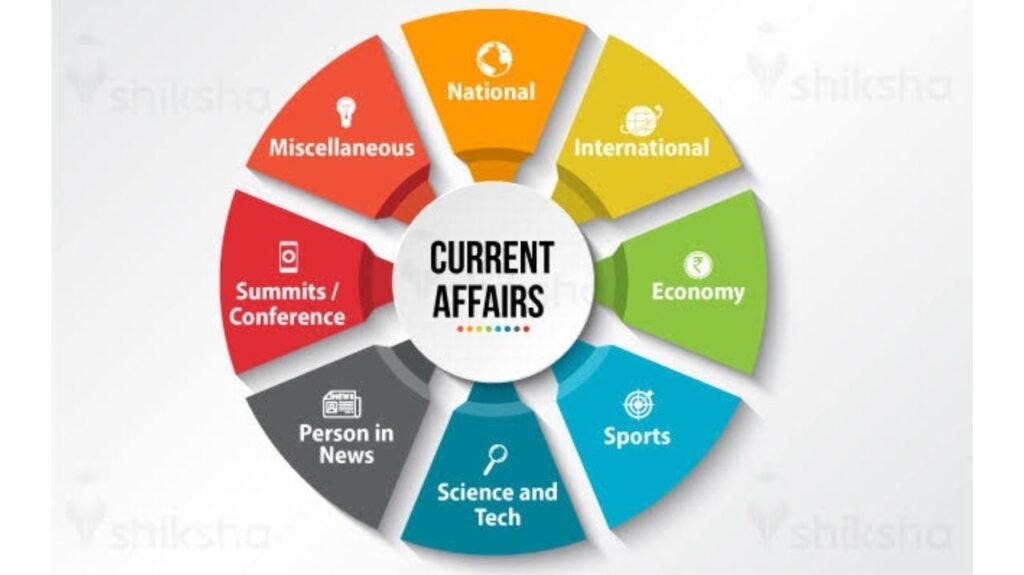
3. Elementary Mathematics:
- Importance: This section tests your basic mathematical skills, including arithmetic, algebra, geometry, and trigonometry.
- Key Areas:
- Arithmetic: Number systems, percentages, averages, ratios, and proportions.
- Algebra: Linear equations, quadratic equations, and basic algebraic formulas.
- Geometry: Lines, angles, triangles, circles, and other geometric shapes.
- Trigonometry: Trigonometric ratios, identities, and applications.
- Recommended Resources:
- NCERT textbooks: A good foundation for basic mathematical concepts.
- R.S. Aggarwal Quantitative Aptitude: A comprehensive guide for competitive exam preparation.
- M. Tyra Mathematics: A popular choice for CDS exam preparation.
Elementary Mathematics for CDS: A Deep Dive
The Elementary Mathematics section of the CDS exam tests your foundational knowledge of core mathematical concepts. While the level of difficulty is generally considered moderate, a solid understanding of these topics is crucial for success.
Key Areas and Concepts:
- Number System:
- Types of Numbers: Natural numbers, whole numbers, integers, rational numbers, irrational numbers, real numbers.
- Number Line: Representation of numbers on the number line.
- Operations on Numbers: Addition, subtraction, multiplication, division, exponents, and roots.
- Fractions, Decimals, and Percentages: Conversions, operations, and applications.
- LCM and HCF: Finding the Least Common Multiple (LCM) and Highest Common Factor (HCF) of numbers using various methods.
- Elementary Number Theory:
- Prime and Composite Numbers: Identification and properties of prime and composite numbers.
- Divisibility Rules: Tests of divisibility by 2, 3, 4, 5, 9, and 11.
- Factors and Multiples: Finding factors and multiples of numbers.
- Algebra:
- Linear Equations: Solving linear equations in one and two variables.
- Quadratic Equations: Solving quadratic equations using factorization, completing the square, and the quadratic formula.
- Polynomials: Basic operations on polynomials, factorization of polynomials.
- Indices and Surds: Laws of indices, simplification of expressions involving surds.
- Sets and Relations: Basic concepts of sets, set operations, and relations.
- Trigonometry:
- Trigonometric Ratios: Sine, cosine, tangent, and their reciprocals.
- Trigonometric Identities: Basic trigonometric identities and their applications.
- Heights and Distances: Solving problems involving heights and distances using trigonometric ratios.
- Geometry:
- Lines and Angles: Properties of lines, angles, and triangles.
- Polygons: Properties of polygons, including triangles, quadrilaterals, and other polygons.
- Circles: Properties of circles, chords, tangents, and arcs.
- Mensuration: Area and perimeter of two-dimensional shapes (triangles, squares, rectangles, circles, etc.) and surface area and volume of three-dimensional shapes (cubes, cuboids, cylinders, cones, spheres).
Tips for Effective Preparation:
- Conceptual Clarity: Focus on understanding the underlying concepts rather than just memorizing formulas.
- Practice Regularly: Consistent practice is key to improving your speed and accuracy. Solve numerous problems from previous year’s question papers and practice sets.
- Short Notes: Create concise notes of important formulas, theorems, and concepts for quick revision.
- Time Management: Practice solving questions within a time limit to improve your speed and accuracy.
- Mock Tests: Take regular mock tests to simulate the actual exam environment and identify areas for improvement.
- Focus on Weak Areas: Identify your weak areas and dedicate extra time to improve your understanding of those topics.
Recommended Resources:
- NCERT Mathematics Textbooks (Class 6-10): A solid foundation for basic mathematical concepts.
- R.S. Aggarwal Quantitative Aptitude: A comprehensive guide for competitive exams.
- M. Tyra Mathematics: Another popular choice for CDS exam preparation.
- Previous Year Question Papers: Analyze previous year’s question papers to understand the exam pattern and difficulty level.
- Online Resources: Utilize online platforms like YouTube, Khan Academy, and Byju’s for video lectures and practice questions.
By diligently following these tips and focusing on consistent practice, you can effectively prepare for the Elementary Mathematics section of the CDS exam and increase your chances of success.
Disclaimer: This information is for educational purposes only and does not constitute financial or professional advice.
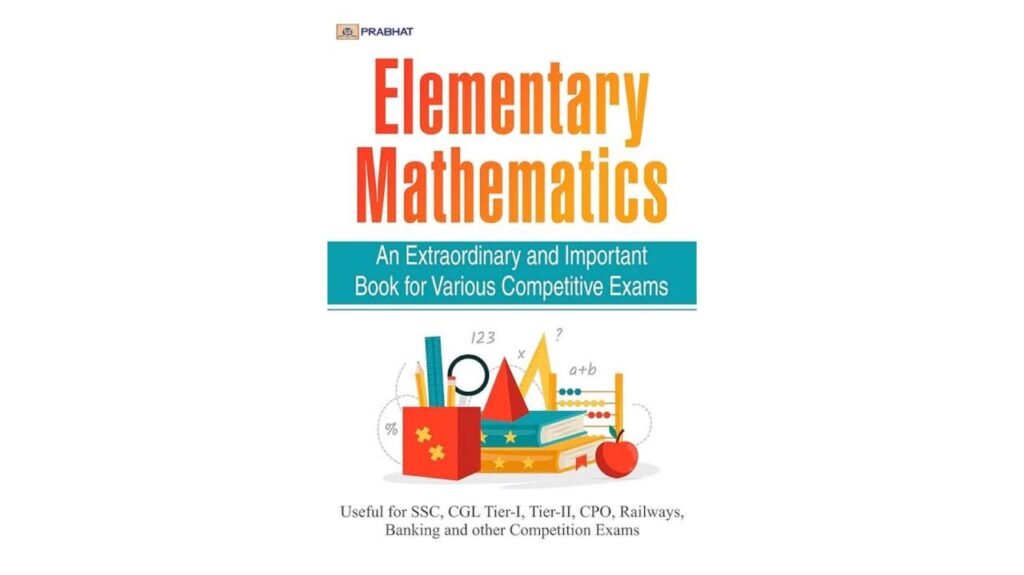
2. General Knowledge:
- Importance: A vast and diverse subject, General Knowledge covers a wide range of topics, including history, geography, polity, economics, current affairs, and defense studies.
- Key Areas:
- History: Indian history, world history, important historical events and personalities.
- Geography: Indian and world geography, physical features, climate, and natural resources.
- Polity: Indian Constitution, political system, government policies, and current affairs.
- Economics: Basic economic concepts, Indian economy, and global economic trends.
- Defense Studies: Indian Armed Forces, military history, defense technologies, and current defense affairs.
- Recommended Resources:
- NCERT textbooks: A valuable resource for Indian history, geography, and polity.
- Newspapers and magazines: Stay updated with current affairs through daily newspapers and magazines like The Hindu, The Indian Express, and Frontline.
- Online resources: Utilize online platforms like Insights on India, Mrunal, and Unacademy for comprehensive coverage of current affairs and static GK.
General Knowledge for CDS: A Deep Dive
The General Knowledge section of the CDS exam is a crucial component, encompassing a wide range of subjects and requiring a strong foundation in various disciplines. This section delves deeper into the key areas and strategies for effective General Knowledge preparation.
Key Areas and Sub-topics:
- History:
- Ancient India: Indus Valley Civilization, Vedic Age, Mauryan Empire, Gupta Empire, major dynasties and rulers, social and cultural developments.
- Medieval India: Delhi Sultanate, Mughal Empire, Vijayanagara Empire, Bhakti and Sufi movements.
- Modern India: Indian National Movement (key leaders, events, and philosophies), social and religious reforms, post-independence India.
- World History: Major civilizations (Greek, Roman, Egyptian), World Wars, Cold War, and significant historical events and personalities.
- Geography:
- Physical Geography: Continents, oceans, mountains, rivers, plateaus, deserts, climate, and natural resources.
- Indian Geography: Physical features of India, rivers, mountains, climate, soil, vegetation, and natural resources.
- Human Geography: Population distribution, urbanization, agriculture, industries, and transportation.
- Polity:
- Indian Constitution: Preamble, Fundamental Rights, Fundamental Duties, Directive Principles of State Policy, salient features of the Constitution.
- Political System: Parliament, President, Prime Minister, Judiciary, state governments, and local self-government.
- Government Policies: Important government schemes, policies, and initiatives.
- Current Affairs: Recent political developments, government policies, and significant political events.
- Economics:
- Basic Economic Concepts: Demand, supply, elasticity, market equilibrium, consumer behavior.
- Macroeconomics: National income, GDP, inflation, unemployment, and economic growth.
- Indian Economy: Economic reforms, challenges, and growth prospects.
- International Economics: Global trade, international organizations, and economic globalization.
- Science & Technology:
- Physics: Basic concepts of motion, force, energy, light, sound, heat, and electricity.
- Chemistry: Basic concepts of matter, chemical reactions, elements, compounds, and periodic table.
- Biology: Cell biology, human physiology, plant and animal kingdom, and environmental science.
- Technology: Recent advancements in science and technology, space exploration, and information technology.
- Current Affairs:
- National: Political developments, government policies, social issues, economic trends, and important national events.
- International: Global politics, international relations, major world events, and international organizations.
- Defense: Military developments, defense technologies, and global security issues.
- Sports: Major sporting events and achievements.
- Defense Studies:
- Indian Armed Forces: Organization, structure, and functions of the Indian Army, Navy, and Air Force.
- Military History: Major wars and battles fought by India.
- Defense Technologies: Modern weapons systems, military technology, and advancements in defense research.
Strategies for Effective Preparation:
- Regular and Consistent Study: Dedicate regular time for in-depth study and revision.
- Focus on Fundamentals: Build a strong foundation in all key areas of the syllabus.
- Current Affairs Updates: Stay updated with current affairs through newspapers, magazines, and online resources.
- Practice Regularly: Solve previous years’ question papers and practice mock tests to assess your progress and identify areas for improvement.
- Revision: Regularly revise the topics covered to reinforce your understanding and improve retention.
- Stay Updated: Continuously update your knowledge base with the latest developments in various fields.
- Focus on Weak Areas: Identify your weak areas and dedicate extra time and effort to improve them.
- Develop Reading Habits: Cultivate a regular reading habit to improve your comprehension and vocabulary.
Recommended Resources:
- Newspapers: The Hindu, The Indian Express, The Times of India
- Magazines: Yojana, Kurukshetra, Frontline
- Online Resources: Insights on India, Mrunal, Unacademy, PIB (Press Information Bureau)
- NCERT Textbooks: For History, Geography, and Economics
- Reference Books: Lucent’s General Knowledge, Manorama Yearbook
By following these strategies and diligently preparing for each aspect of the General Knowledge section, you can significantly enhance your chances of success in the CDS examination.
Disclaimer: This information is for educational purposes only and does not constitute financial advice.
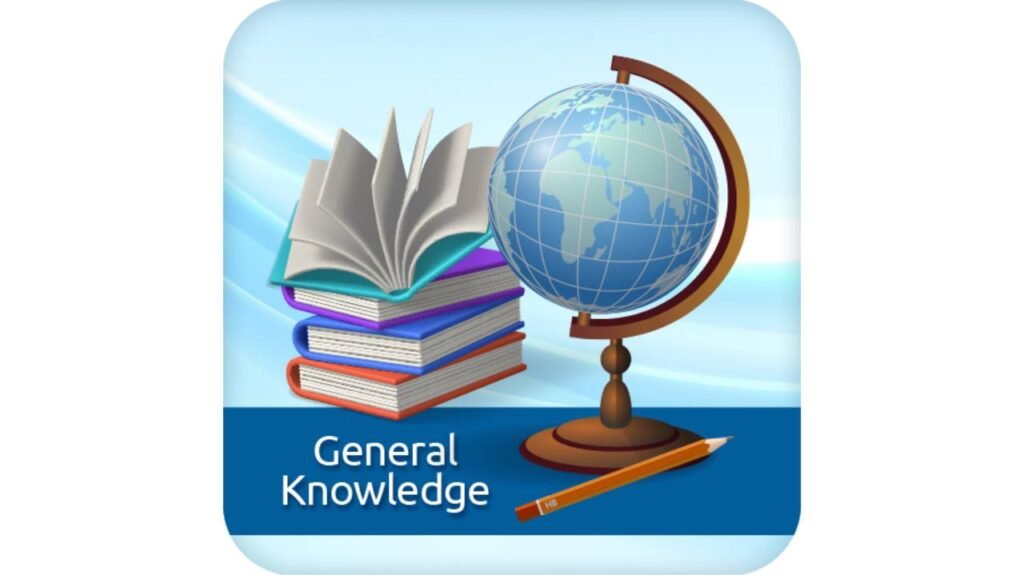
1. English:
- Importance: English is crucial for both the written exam and the SSB interview. Strong English language skills are essential for clear communication, effective expression, and understanding complex passages.
- Key Areas:
- Reading Comprehension: Develop the ability to read and understand passages quickly and effectively.
- Grammar and Vocabulary: Master English grammar rules, improve vocabulary, and enhance sentence construction.
- Writing Skills: Develop strong writing skills, including essay writing, précis writing, and letter writing.
- Recommended Resources:
- English Grammar and Composition by Wren & Martin: A classic textbook for English grammar.
- Word Power Made Easy by Norman Lewis: An effective vocabulary-building guide.
- The Hindu, The Indian Express: Read English newspapers daily to improve reading comprehension and vocabulary.
Mastering English for CDS: A Deep Dive
The English section of the CDS exam is crucial for success. It assesses a candidate’s command over the language, which is vital for effective communication and understanding. This section delves deeper into the nuances of English language preparation for the CDS exam.
Key Areas and their Importance:
- Reading Comprehension:
- Why it’s crucial: This section tests your ability to understand and interpret passages effectively. It assesses your comprehension, vocabulary, and ability to identify key ideas and draw inferences.
- Strategies:
- Active Reading: Engage actively with the text by highlighting key points, summarizing paragraphs, and asking questions.
- Vocabulary Building: Enhance your vocabulary by reading newspapers, novels, and online articles.
- Practice: Regularly practice reading comprehension passages from past CDS papers and other competitive exam materials.
- Grammar and Usage:
- Why it’s crucial: A strong grasp of grammar is essential for clear and effective communication.
- Key Concepts:
- Parts of Speech: Nouns, pronouns, verbs, adjectives, adverbs, prepositions, conjunctions, interjections.
- Tenses: Present, past, future tenses and their various forms.
- Voice: Active and passive voice.
- Sentence Structure: Subject-verb agreement, clauses, phrases, and sentence construction.
- Strategies:
- Study Grammar Rules: Thoroughly understand the rules of English grammar.
- Practice Exercises: Solve grammar exercises from various sources, including textbooks and online platforms.
- Identify Common Errors: Pay attention to common grammatical errors such as subject-verb agreement, pronoun errors, and tense errors.
- Vocabulary:
- Why it’s crucial: A strong vocabulary is essential for effective communication and understanding complex passages.
- Strategies:
- Daily Reading: Read newspapers, magazines, and novels regularly to encounter new words.
- Vocabulary Building Techniques: Use flashcards, mnemonics, and word roots to learn and remember new words.
- Maintain a Vocabulary Notebook: Keep a notebook to record new words and their meanings.
- Use a Dictionary: Refer to a dictionary whenever you encounter an unfamiliar word.
- Writing Skills:
- Why it’s crucial: The essay writing section assesses your ability to express your thoughts and ideas clearly and concisely.
- Key Aspects:
- Structure: Organize your essay with a clear introduction, body, and conclusion.
- Clarity and Coherence: Express your ideas clearly and logically, ensuring smooth flow and coherence.
- Grammar and Usage: Use correct grammar and vocabulary throughout your essay.
- Vocabulary and Style: Use a varied vocabulary and an appropriate writing style.
- Strategies:
- Practice Writing: Regularly practice writing essays on various topics.
- Get Feedback: Ask teachers or mentors to review your essays and provide feedback.
- Analyze Model Essays: Study well-written essays to understand effective writing techniques.
Recommended Resources:
- Books:
- Wren & Martin’s English Grammar and Composition: A classic textbook for English grammar.
- Word Power Made Easy by Norman Lewis: An effective vocabulary-building guide.
- Objective General English by R.S. Aggarwal: A comprehensive guide for competitive exams.
- Newspapers and Magazines:
- The Hindu, The Indian Express: Read daily newspapers to improve reading comprehension and vocabulary.
- Online Resources:
- Online Grammar and Vocabulary Exercises: Utilize online platforms and websites that offer grammar and vocabulary exercises.
- Mock Tests: Practice with mock tests to assess your progress and identify areas for improvement.
Tips for Effective English Preparation:
- Consistency is Key: Dedicate regular time for English language practice, even if it’s just for a short duration.
- Active Learning: Engage actively with the learning process, ask questions, and seek clarification whenever necessary.
- Regular Reviews: Regularly review concepts and vocabulary to reinforce learning.
- Focus on Weak Areas: Identify your weaknesses and focus on improving them through targeted practice.
- Stay Updated: Keep yourself updated with current affairs and vocabulary through reading and listening.
By following these strategies and utilizing the recommended resources, you can effectively prepare for the English section of the CDS exam and increase your chances of success.
Disclaimer: This information is for educational purposes only and does not guarantee success in the CDS exam.
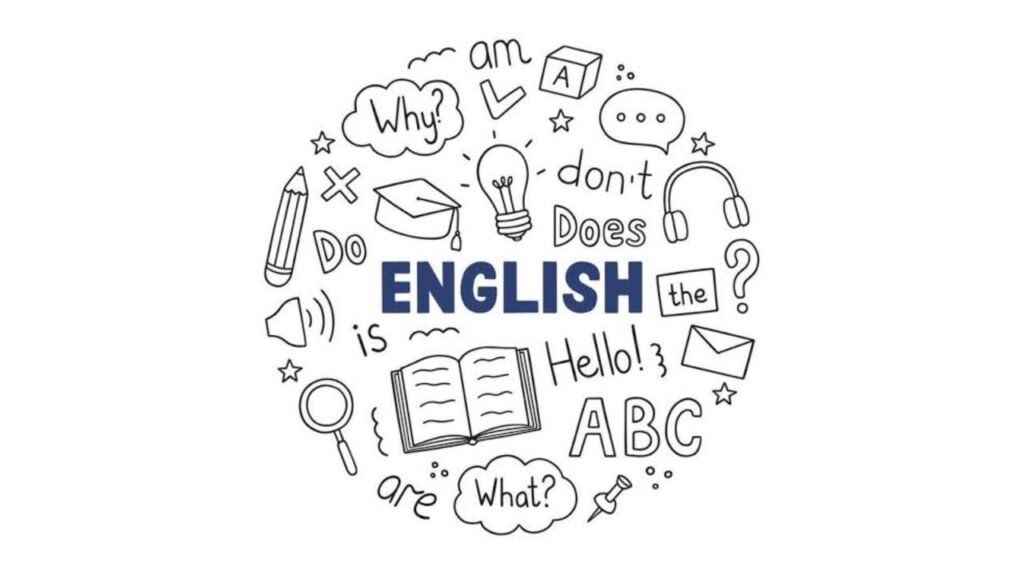
Choosing the Right Courses:
Selecting the right courses depends on your individual strengths and weaknesses. Identify your areas of improvement and choose courses that address your specific needs. Consider factors such as the quality of instruction, the experience of the faculty, and the overall learning environment when selecting a coaching institute.
Disclaimer: This list is not exhaustive, and there are many other excellent courses available for CDS exam preparation.
FAQs
Q: What is the CDS exam, and what are the different academies/courses offered through it?
A: The CDS (Combined Defence Services) exam is conducted by the UPSC (Union Public Service Commission) in India for recruitment into the Indian Military Academy (IMA), Indian Naval Academy (INA), Air Force Academy (AFA), and Officers’ Training Academy (OTA). Each academy corresponds to a different branch of the armed forces and offers a specific training course.
Q: What are the eligibility criteria for the CDS exam and the different courses?
A: Eligibility criteria vary slightly depending on the academy. Generally, candidates must be Indian citizens, within a specific age range (which differs for each academy), and possess a bachelor’s degree. Certain educational qualifications are also required for specific academies (e.g., engineering degree for IMA/INA/AFA, graduation in any discipline for OTA). The blog post should ideally provide a summary of these requirements and direct readers to official sources for detailed information.
Q: How are the “best” courses determined for this list?
A: The “best” courses are subjective and depend on individual aspirations and preferences. However, the list likely considers factors like: Career prospects: Opportunities for advancement and specialization within the respective armed forces branch.
Training quality: The rigor and comprehensiveness of the training provided at each academy.
Personal preferences: Individual interests in specific branches of the armed forces (Army, Navy, Air Force).
Popularity and competition: The level of competition for entry into each academy.
Q: What is the selection process after clearing the CDS exam?
A: Clearing the CDS written exam is just the first step. Shortlisted candidates are then called for the SSB (Services Selection Board) interview, a multi-stage assessment process that evaluates personality, leadership qualities, and overall suitability for a career in the armed forces. Medical examinations are also conducted.
Q: Which course/academy should I choose?
A: The choice of academy/course depends entirely on your individual interests and career goals. If you aspire to join the Army, IMA or OTA are the relevant choices. For the Navy, it’s INA, and for the Air Force, it’s AFA. Consider your aptitude, physical fitness, and long-term career aspirations within each branch to make an informed decision. The blog post should encourage readers to research each academy thoroughly and consider their own preferences.


